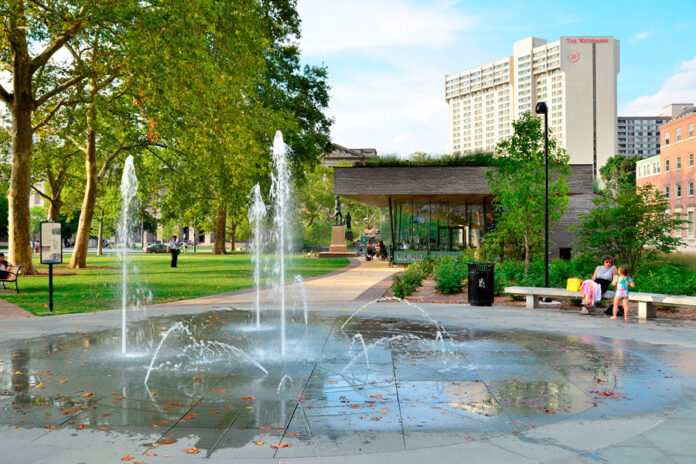Communities across the United States are experiencing the effects of climate change, as summer temperatures and humidity soar and air quality worsens. Extreme heat is very dangerous. Specifically, high temperatures can pose threats for vulnerable residents like children, the elderly, and people with chronic illnesses or physical disabilities.
People who consider themselves completely healthy can also succumb to the stress of heat. During hot days, it is important for Pennsylvanians to stay in air-conditioned spaces to avoid heat-related illnesses.
Esperanza is a community-based organization in Hunting Park, and this area is considered one of the city’s hottest neighborhoods. Historically redlined neighborhoods like Hunting Park, Cobbs Creek, and Point Breeze are predominantly Black and Latino.
These communities have older infrastructure, less green space, and more blacktop and concreate areas, which results in higher heat indexes compared to other parts of Philadelphia. Research has suggested that exposure to excess heat can make respiratory conditions worse and increase mortality rates. Additionally, heat exhaustion and heat stroke are serious threats during the summer season.

The low-income home energy assistance program (LIHEAP) is a federally funded program that helps households pay for their energy bills. Pennsylvania offers LIHEAP during the winter months for heating but does not currently cover cooling costs in the Summer. Other neighboring states such as New Jersey, Delaware, Virginia, Ohio, and New York offer LIHEAP for cooling.
Esperanza and Community Legal Services (CLS) saw that action needed to be taken as temperatures continue to climb each summer in North Philadelphia. To that end, both organizations worked together and developed a unique survey that asked various questions about cooling needs, shut offs, and affordability of energy bills.

113 Philadelphia residents completed the survey and the results suggested that 76% cannot afford their energy bills in the summer. Additionally, a community listening session was conducted to get a deeper understanding of residents’ personal experience with LIHEAP and recommendations for change.
All participants agreed that LIHEAP should be expanded to include cooling as it is becoming more difficult to afford utilities due to high costs and increasing temperatures. Some even cited that the frequent heat waves are making certain health conditions worse, which is affecting their quality of life.

Participants of the listening session also asked that more program and educational materials be accessible in Spanish to help increase awareness of LIHEAP and better serve the Latino community. The findings from the survey and listening session were presented in a policy brief format. A policy brief is a summary of information that helps readers make decisions about critical policies by providing research and recommendations for the best course of action.
Esperanza and CLS wrote a policy brief to present data, policy solutions, recommendations, community voices, and a clear call to action to Pennsylvania legislators. Climate change is a public health crisis and should be treated like one, as hundreds of people die from extreme heat each year across the United States. Esperanza and CLS urgently call on Pennsylvania legislators to expand LIHEAP to cover cooling needs to avoid adverse health effects of rising temperatures in low-income neighborhoods and communities of color. Lastly, we encourage Philadelphians to take action by calling their elected officials and ask them to expand LIHEAP. You can read the full policy brief here: tinyurl.com/ExpandLIHEAP.

This article is part of the Esperanza Community Anti-Poverty Project, which informs and engages Latinos on key policies and programs impacting their social and economic well-being.







